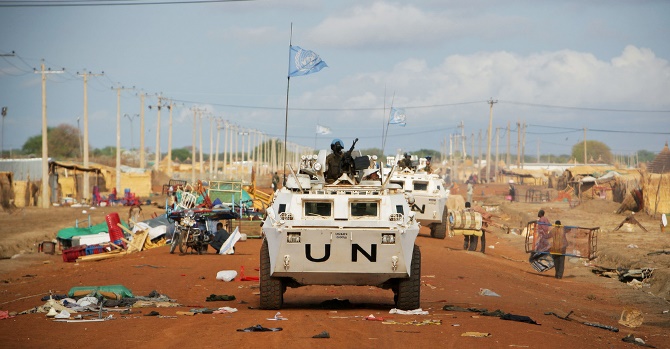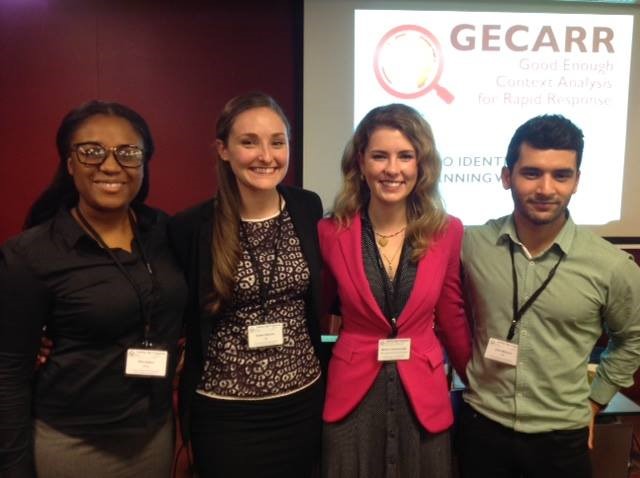What books are the International Development department staff looking forward to reading in 2014?
As the new year starts I am trying to find time to read two books published last year. The first is The Entrepreneurial State: Debunking Public vs. Private Sector Myths by Mariana Mazzucato (Anthem 2013). In the recent past Mazzucato has often appeared on BBC Newsnight offering what seemed to me to be eminently sensible ideas about the condition of the British and European economies and how to get beyond the effects of the financial crisis. She is an economist at Sussex and the book looks to be a fascinating Schumpeterian take on the role of the state in making markets work in the most developed countries.
The second book, which has been in my in-tray since before Christmas is China Goes Global by David Shambaugh (OUP 2013), which is one of the most recent attempts to get a handle on China’s new thrust outward in the world, written by a leading China scholar at George Washington University.
For my bed time reading, I am very slowly enjoying Charlie Chaplin’s autobiography – a very old book, but one that provides a bit of relief from the social sciences.
I’ve been enjoying James Gilligan’s Why Some Politicians are More Dangerous than Others (Polity 2013), an analysis of how Republican Presidents have presided over high and rising homicide and suicide rates while these rates have fallen under Democratic Presidents. Gilligan contrasts this with the Republicans’ claim to be the party of ‘law and order’ and he brings out the role of shame and unemployment in driving both indices in line with his earlier emphasis on shame in Violence: Our Deadliest Epidemic and its Causes (Putnam 1996), an important reading in the Complex Emergencies course.
I’ve also been enjoying Owen Jones’ book Chavs; The Demonization Of The Working Class (Verso 2012). This includes a good analysis of the popularity of far-right groups in the UK, which Jones links to the Labour Party’s failure to act strongly on jobs and housing.
I also liked Zoe Marriage’s book Formal Peace and Informal War: Security and Development in Congo (Routledge 2013), an incisive (and sometimes quirky) analysis of the shortcomings of ‘neo-liberal’ peacebuilding in the DRC.
Never Let a Serious Crisis Go To Waste: How Neoliberalism Survived the Financial Meltdown by Philip Mirowski (Verso, 2013)
Mirwoski knows no equal as a critical historian of modern economics (More Heat Than Light, Machine Dreams: How Economics Became a Cyborg Science). This one is contemporary and well worth the price.
Breathing Corpses by Laura Wade (Oberon Books, 2005)
I came across Laura Wade last year, when I read ‘Posh’ – her satire on elite student clubs at the University of Oxford, and the political system those elites ‘graduate’ into. Breathing Corpses is one of her earlier plays that put her on the map, so I’m looking forward to digging in to that.
The State by Bob Jessop (Polity Press 2014)
Several years ago I read some of Bob’s work on Foucault and statehood and – like much of what he writes on statehood – it was really engaging and thought-provoking. As a fan of wordplay, I’m pretty disappointed with the title of his upcoming book, but very much looking forward to reading it.
Histories of Victimhood by Steffen Jensen and Henrik Ronsbo (University of Pennsylvania Press 2014)
Working on South Africa, I’m a big fan of Steffen Jensen, particularly his work on gangs in Cape Town. This book, coming out in the spring, is looking at how we can address victimhood without essentialising people and communities on that basis. Its an edited collection with a global reach, and it should be a cracking read…
A Vindication of the Rights of Woman (1792) by Mary Wollstonecraft
I have two young nieces and that has sparked lots of discussions in my family about gender in the context of parenting. This seemed like a great excuse to me to re-read my collection of feminist works. As I’m in the midst of finishing my DPhil, I have started with the thinnest! Essential reading for all those who haven’t read her already… and great re-reading for those who have.
I am always very far behind in reading, but of the 31 books in my on-line ‘wish list’ at amazon.com, one is Postcolonial Theory and the Spectre of Capital by Vivek Chibber (Verso 2013). Chibber’s last book, Locked in Place, State-Building and Late Industrialization in India (Princeton 2003), attracted a lot of attention in Sociology, and I used it in my graduate seminars in Comparative Political Economy. I am eager to see his engagement (critique) of postcolonial studies but am not sure what to expect.
In the next couple of months I’ll be reading these two recently published books. Although very different, if there is a unifying theme to these two books, it concerns the creative potential of humanity to overcome its problems – so a good read for students of international development!
Worldly Philosopher: The Odyssey of Albert O.Hirschman by Jeremy Adelman (Princeton 2013).
This book chronicles the life and times of Albert Hirschman – those of you doing DV400 will know his work from the week on early development economists. The book traces how Hirschman’s personal experiences, fleeing from Nazi Germany and fighting the rise of fascism in the 20th century, shaped his life-long commitment to the ideals of tolerance and equality. He became a leading intellectual and influential adviser to many governments and institutions. Adelman argues that ‘his enduring legacy is one of hope, open-mindedness, and practical idealism’.
MaddAdam by Margaret Attwood (Bloomsbury Publishing; 2013)
This is the final part of Margaret Attwood’s post-cyberpunk trilogy. It is set when the world is at the edge of a new beginning after a human-made plague has destroyed most of humanity. It is a disturbing, violent, gripping and joyous book. Two words of advice about the book – read the other two volumes first and don’t start reading them when you have an essay due as you might not be able to put them down.
In 2013 I read Mortality (Atlantic 2012) by Christopher Hitchens in which he discusses his dying. The same tome mentions his book God is Not Great: How Religion Poisons Everything (Atlantic 2007), and which, I think, is unsurpassed in its devastation of the man-made institution of religion. On a slightly lighter note—since Hitch can be extremely funny about people’s beliefs—Bill Bryson’s Shakespeare: The World as a Stage (Harper Perennial 2008) is a truly wonderful survey of what is, and what is not known about the Bard. Finally, in 2014 I am looking forward to reading Longitude: The True Story of a Lone Genius Who Solved the Greatest Scientific Problem of His Time (Harper Perennial 2005) by Dava Sobel. The book tells the story of how John Harrison eventually won the Longitude Prize, which was established by Parliament in 1714, i.e. exactly three hundred years ago.
In 2014, I have three ‘serious’ and very different books to look forward to, all of which are either unrelated or indirectly related to my research:
The Devil Within: Possession and Exorcism in the Christian West by Brian Levack (Yale 2013), on demonic possession, a subject matter I have become increasingly absorbed in, and that I would if I could, switch to entirely.
Development Aid Confronts Politics: The Almost Revolution Thomas Carothers and Diane de Gramont (Carnegie 2013), on the incorporation of political goals and politically smart tactics within contemporary development aid.
Capital in the Twenty First Century. Thoma Piketty (Harvard University Press 2014). I have followed Piketty’s exceptional work on long-term income inequality for years now. This book promises to bring it all together and to explain ‘the grand dynamics that drive the accumulation and distribution of capital’.
And finally for something lighter, I am really looking forward to Srinath Perur’s sidelong glance at contemporary India through immersion in conducted bus tours. I really hope it comes out in paperback soon:
If it’s Monday it must be Madurai: A Conducted Tour of India by Srinath Perur (Penguin 2014).
As usual I have fallen behind in my reading and so I’m looking forward to reading a couple of books from 2013. First up is Angus Deaton’s The Great Escape: Health, Wealth, and the Origins of Inequality (Princeton University Press, 2013). Deaton is one of the world’s most interesting development economists who has done a lot of ground-breaking empirical work on the relationship between health and development. His book has attracted a good amount of press for his critique of foreign aid but his interests are much broader and his solutions to the problems of underdevelopment are thought-provoking.
Another book on development that appeared last year is Nina Munk’s The Idealist: Jeffrey Sachs and the Quest to End Poverty (Doubleday, 2013), which is a critical examination of Jeffrey Sachs and his Millennium Villages Project (MVP), with special attention to two villages in Kenya and Uganda. Rather than a rant against Sachs and his work, Munk’s book has gotten a lot of praise for its very careful and detailed analysis of how the MVP has gone wrong.
Finally, one book I look forward to this year is Bill Easterly’s The Tyranny of Experts: Economists, Dictators, and the Forgotten Rights of the Poor (Basic Civitas, 2014). Easterly is always a good writer and capable of stirring up controversy and I would expect this book to be no different.





